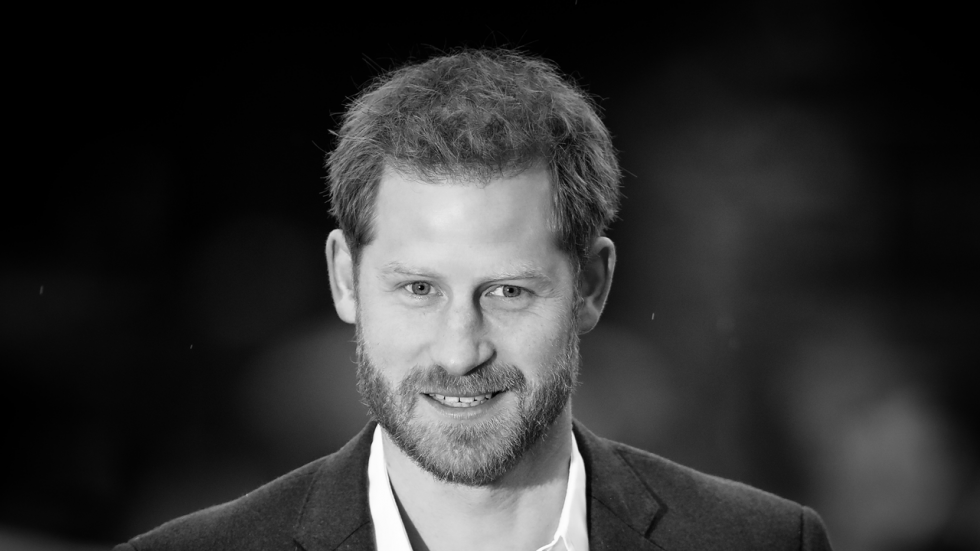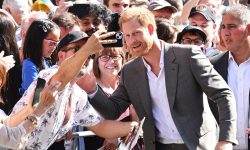
If Prince Harry manages to leave just one surprising impression of royal life in his memoir, Spare, it’s that he seemingly had tons of time to watch movies and TV. A recurring motif of the book’s second section is the solace he finds in rewatching Friends as he does his laundry. Elsewhere, he shows familiarity with an array of American cartoons, from Family Guy to Johnny Bravo. But as the memoir reaches its emotional height—Harry contemplates life on his own in California with Meghan Markle—he draws a similarity between his life and another ’90s pop-culture favorite.
“I’d been forced into this surreal state,” Harry writes, “this unending Truman Show in which I almost never carried money, never owned a car, never carried a house key, never once ordered anything online, never received a single box from Amazon, almost never traveled on the Underground. (Once, at Eton, on a theater trip.) Sponge, the papers called me. But there’s a big difference between being a sponge and being prohibited from learning independence.”
I understand why Harry feels a kinship with the 1998 Peter Weir psycho-comedy’s protagonist, the Jim Carrey character whose belated discovery that his entire world has been faked, filmed, and broadcast to the public upends his life and tanks his sanity. Unlike Truman, however, Harry has been very aware of the cameras, the press interest, and the story line as it’s played out. In Spare, Harry juxtaposes his life with the sometimes inaccurate tabloid reports that result, and his world seems less a secret reality show than a full-fledged panopticon.
Harry’s behavior is conditioned by his visions of the press right over his shoulder, and they approach in ways that startle him. In one chapter, he is visited by a palace employee at Eton and immediately worries that the press has learned that he recently lost his virginity. Instead, he learns that a tabloid editor, whom he describes as “an infected pustule on the arse of humanity, plus a shit excuse for a journalist,” has plans to print that Harry is a drug addict who did a stint in rehab. For Harry, it’s an early lesson in how a small truth—the prince has been drinking alcohol in his basement at Highgrove, he explains, and he did take a day trip to a rehab center for charity work—can become the beginning of an urban legend. It ultimately becomes self-fulfilling when Harry does dabble in drugs like cocaine and becomes a heavy drinker.
It’s worth remembering that in Jeremy Bentham’s 18th-century conception, the panopticon was supposed to be a peaceful, secure, and economical alternative to a death sentence. To that end, you can almost understand Britain’s modern constitutional monarchy, surveilled and held accountable by the rabid press, as the peaceful and economical alternative to expropriating the royals entirely, as countries like France did with the help of the guillotine. It was nearly two centuries later that Michel Foucault, inspired by Bentham’s image, pointed out that the panopticon trades direct force for psychological control, which can be every bit as powerful. And as much as Spare fits snugly within its genres—royal biographies, books about father-son relationships, narratives of the war on terror—Harry’s contortions against the hold of the tabloid media give it the air of a psychological thriller unlike anything we’ve ever seen from the Windsors.
Throughout his remembrances, another tabloid-constructed idea is raised: that Harry isn’t all that bright. Though he struggles with the implication from his family and the papers, he also jokes about it with genuine ease. The book opens with an epigraph from William Faulkner: “The past is never dead. It isn’t even past.” Perhaps anticipating skepticism about his familiarity with literature of the American South, Harry admits pages later that he found it while browsing brainyquote.com. It wasn’t inevitable, but Harry is charming enough to live in the ambiguity his words occasionally prompt. He can joke about never having heard of Eat, Pray, Love until he started dating Meghan without undermining his real frustrations with his father and brother’s assumptions about his intelligence.
The weight of royal history does snake throughout the book’s narrative, but in marked contrast to King Charles III, Harry is nonplussed by the importance of his forebears. In one scene right after Prince Philip’s funeral in April 2021, the bookish father wanders a Windsor graveyard with his sons and launches “into a micro-lecture about this personage over here, that royal cousin over three, all the once-eminent dukes and duchesses, lords and ladies, currently residing beneath the lawn.” Harry, on the other hand, was given a ruler in history class to use as a cheat sheet because he couldn’t remember the order of the past monarchs.
At times, there’s an understandable urge for the reader to chide Harry for his lack of appreciation of his birthright. But his sumptuous descriptions of the family’s castles and grounds show that he has plenty of admiration for historic finery and its beauty. Still, as a person who is not overawed by art for its own sake or traditional aristocratic hobbies, unlike most other members of his family, Harry becomes an ideal vessel for the values that lie underneath the royal performance. “Being a Windsor meant working out which truths were timeless, and then banishing them from your mind,” he writes as a means of explaining why he was never too concerned with his place in the line of succession. “It meant absorbing the basic parameters of one’s identity, knowing by instinct who you were, which was forever a byproduct of who you weren’t.”





